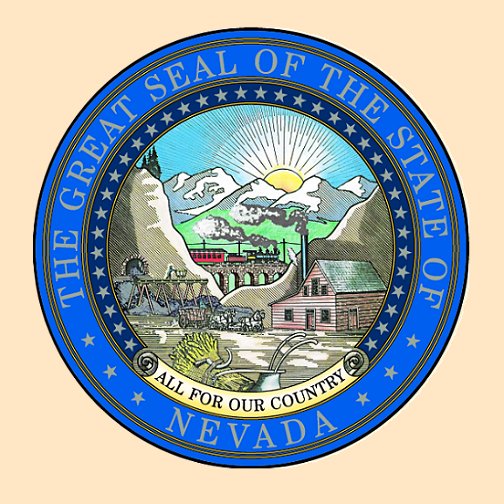| |
According to the
Federation of Tax Administrators, the following states impose
no
income tax on state residents: Alaska, Florida, Nevada, South Dakota,
Texas, Washington, and Wyoming. In addition, New Hampshire and
Tennessee
limit state non-business and non-trader income tax to dividends and interest income only. In these
two states, the bulk of most people's income -- i.e., salary or wages --
goes untaxed. Nice break! Delaware has no income tax
filing requirement on domestic entities located solely out of the state.
The following states impose
no
sales tax on purchases made in-state: Alaska, Delaware, Montana, New Hampshire,
Oregon and
Hawaii.
A community property system
is presently in effect in Arizona, California, Idaho, Louisiana,
Nevada, New Mexico, Texas, Washington and Wisconsin, with
Alaska having an "elect-in" system.
Under a community property system, property acquired by a husband or
wife during their marriage (except property acquired by gift, devise, or
descent) is usually considered to be community property. The
community relationship is considered to be a form of a partnership
(usually with one spouse acting as managing partner or agent for the
community), both partners having vested, equal, and undivided interests
in the community property
"JTWROS" vs. "Community Property": This can be a preferable way
of
taking title to real estate property in Arizona. If one spouse dies,
the tax basis in the property steps to FMV of both halves of the
property. Therefore, there generally will be no gain on the sale of the
property is sold soon after the death of the first spouse.
Nevada Secrecy?
In spite of the
lies propagated
by Dean Heller's office , in 2006 a district court held that the IRS may
constitutionally issue a summons to a state agency (specifically
including the Nevada Department of Taxation) in connection with an IRS
investigation of a state citizen. (Martini v. US district of
Nevada 5/10/2006)
"The Nevada Tax Ploy"
Some people are always looking for the easy way out, and often
Nevada Corporation salesmen are only too happy to sell to a taxpayer who
does not fully understand the truth. First and foremost, to make
money selling incorporation services, one needs to be a salesman.
Whatever it takes to make today's sale is of primary importance.
Years down the road when it all blows up in your face is long after that
salesman has moved on to some other job, leaving you holding the bag
- the IRS audit or the State audit, or worse.
Nevada entities of all types can be utilized properly, legally and
beneficially to accomplish various goals not otherwise available solely
with an entity formed in your own home residence State -
including some limited State income tax deferrals (or even permanent
savings in some cases), superior secrecy of actual entity ownership,
asset protection and hiding away of assets and wealth.
There are all sorts of reasons one might want secrecy and asset
protection. Such as:
- A lawsuit by a business
partner.
- A professional malpractice
lawsuit.
- A major punitive damages
lawsuit for an injury at your home, your business or your business or
personal automobile.
- A tax audit resulting in a
huge IRS or State assessment.
- An automobile accident
lawsuit claiming damages far beyond your insurance limits.
- Devastating medical bills /
Medicaid bills for yourself or a family member.
- DiIiViOiRiCiE
- A lawsuit for defamation of
character, libel, negligence, inadvertent anger or words spoken,
personal neglect or your dog barking at or biting a neighbor or a
burglar.
- Having someone spill coffee on
themselves, find a severed body part in their chili, find glass in
their salad, or a fly in their soup.

In most all cases the asset
protection plan must be fully operational and in place before even the
slightest inkling of any of the above problems surface. It is too late
to start thinking about asset protection once the cause of action has
taken place, if you want the full benefit of the asset protection plan.
Waiting until after the cause of action can result in a
Fraudulent Conveyance. See
http://www.fraudulenttransfers.com/ for more on this.
What a Nevada corporation is not necessarily the best thing for is to
avoid beaucoup bucks on your home resident State income taxes or your Federal income taxes.
Yes, to a limited extent you can certainly form a Nevada c-corporation
which in turn bills your resident
State business for something, thereby having deductible expenses in your
home residence State and in effect shifting income into Nevada where
there are no State income taxes to be paid. You might also be able
to generate revenues from 3rd parties directly into the Nevada
c-corporation. This kind of arrangement, if sucessful, also results
in some federal income tax savings being taxed as a low 15% corporate
tax rate (on the first $50,000 per year), rather than say at a regular
35% personal tax rate.
What they often forget to tell you is that generally the income stays in
Nevada. Bring it back into your home state as a salary, commission,
consulting fee, royalty, rent payment, dividend or interest on a loan
and it is taxed just like it would have been otherwise. Buy an
automobile or computer and bring it back into your home state, and
ditto. So you must have the financial ability to leave the income
in Nevada.
What they also forget to tell you is that this so-called "Geoffrey
loophole" (for the Toys R Us company tax arrangement) has been attacked
successfully by many States. To counteract the Geoffrey
challenges, you may need a legitimate rented office in Nevada complete
with a land-line telephone, at least one worker and so on.
TraderStatus.com is able to assist in arranging a referral for this
level of support, if you are inclined to go this route.
Do it yourself methods are available at significant savings:
UPS offers mail box and forwarding services:
http://www.theupsstore.com/products/maiandpos.html
USPS offers secret mail forwarding:
http://www.usps.com/receive/premiumforwarding/welcome.htm
Vonage offers NV telephone numbers that ring anywhere in the USA:
http://www.vonage.com/
Sprint offers NV cellphone numbers
if you have a NV mail box address:
http://www.sprint.com/
Another sales pitch is that, well you can spend the Nevada money on
employee related benefits: retirement plans, medial plans and so on.
But they forget to tell you that the very same benefits with the very
same net tax results are available with an entity in your home state!
The way Nevada defers taxes is to shift income into Nevada.
Shifting expenses into Nevada to offset this income, negates the
whole purpose of shifting the income into Nevada to begin with!
But it is this type if circular argument that a good salesman can use to
attempt to answer any doubts had by a prospective customer.
It reminds me of the charlatans selling "Living Trusts" by telling you
that for $2,500 they'll form a living trust for you resulting in huge
death tax savings. Yes, it is true that Living Trusts can be a great
tool, but contrary to what
the charlatans tell you, they do not save death taxes. They never
mention that this death tax savings results form the insertion of a few
extra paragraphs in the Living Trust document and that these same
paragraphs, if inserted into an everyday Last Will & Testament, result
in the exact same death tax savings! Yes, those paragraphs in a
$200 Will rather than in a $2,500 Living Trust will result in the exact
same death taxes being saved.
Finally, while you likely will be able to save or defer some Federal and
State taxes, it is never made clear by the salesman that this little tax
saver only works for the first $250,000 in net income funneled into the
corporation during your lifetime. After that the
Accumulated Earnings Tax comes into play. Note that two of the
three exceptions to this (shown at the preceding link) will generally
result the income being taxed by your home residence state. The
other exemption (for business expansion etc) while possible, is a hard
nut to crack for a mere Nevada shell that in reality exists for
shuffling some paper invoicing through. Just how far can one push
the envelope? For practical purposes lets just say that in your
lifetime, up to $250,000
in net taxable income can be taxed at lower rates with the use of a
separate c-corporation.
The above narrative is not meant to dissuade you from forming a Nevada
entity. It is just meant to make sure your eyes are open and you
do not have any unrealizable or false expectations.
NV tax due:
Starting in 2009/2010 the Nevada Secretary of the State is collecting
a $200 Business License fee (plus a $100 late filing fee)
State Business License Application
http://nvsos.gov/Modules/ShowDocument.aspx?documentid=1182
see: 3. If you are exempt from the requirements of the State Business
License pursuant to Section 7(2)(a - e) of AB 146 of the 2009 Nevada
Legislature, place one of the following codes in Section 3:
003 - A home-based business
whose net earnings are not more than 66 2/3 percent of the average
annual wage
Annual State Business License Application
http://nvsos.gov/Modules/ShowDocument.aspx?documentid=643
see: Section 7(2) Exemption Codes
003 - Home-based Business
For many traders, the business / entity can be designed to qualify for
an exemption.
Search for information by State:
http://www.sba.gov/hotlist/businessnames.html
Search to see if the entity name you wish to use is available
in the USA:
http://www.knowx.com/infoam.exe?form=corp/search.htm&userid=guest&password=welcome
State Secretary of the State Web Sites:
http://www.coordinatedlegal.com/SecretaryOfState.html
State Tax Department Web Sites:
http://www.ct.gov/drs/cwp/view.asp?a=1456&q=266120
State Tax Department Web Sites:
http://www.statelocalgov.net/state-ct.htm
State Tax Form Web Sites:
http://www.taxadmin.org/fta/link/forms.html
State Motor Vehicle Department Web Sites:
http://www.drivershandbook.com/handbooks/usa/
All 50 States' and D.C.'s Home Pages and Workers' Compensation Agencies:
http://www.comp.state.nc.us/ncic/pages/all50.htm
Search to see if the entity name you wish to use is available in Nevada:
http://sos.state.nv.us/begin.asp
https://esos.state.nv.us/SOSServices/AnonymousAccess/CorpSearch/CorpSearch.aspx
Foreign Corporations Publication Requirement FAQ:
http://secretaryofstate.biz/comm_rec/foregin_corp_faq.htm
 Search to see if the entity name you wish to use is available
in Alaska: http://www.dced.state.ak.us/bsc/CorporationSearch.cfm Search to see if the entity name you wish to use is available
in Alaska: http://www.dced.state.ak.us/bsc/CorporationSearch.cfm
Alaska has a $100 flat tax - assessed against LLCs.
 Search to see if the entity name you wish to use is available
in Delaware:
http://sos-res.state.de.us/tin/GINameSearch.jsp Search to see if the entity name you wish to use is available
in Delaware:
http://sos-res.state.de.us/tin/GINameSearch.jsp
Delaware has a $100 flat tax - assessed against LLCs.
 Search to see if the entity name you wish to use is available
in Florida:
http://www.sunbiz.org/corpweb/inquiry/cormenu.html Search to see if the entity name you wish to use is available
in Florida:
http://www.sunbiz.org/corpweb/inquiry/cormenu.html
Florida has an Intangibles tax assessed against open positions held on
January 1st. (REPEALED for the
most part beginning on January 1, 2007)
http://dor.myflorida.com/dor/taxes/ippt.html
How To File For Homestead Exemption
 Search to see if the entity name you wish to use is available
in South Dakota:
http://www.state.sd.us/applications/st02corplook/corpfile.asp Search to see if the entity name you wish to use is available
in South Dakota:
http://www.state.sd.us/applications/st02corplook/corpfile.asp
South Dakota requires a a Franchise Tax form for S-Corps.

Search to see if the entity name you wish to use is available
in Tennessee:
http://www.tennesseeanytime.org/soscorp/
Tennessee requires form 150 for S-Corps and LLCs.

Search to see if the entity name you wish to use is available
in Texas:
http://www.sos.state.tx.us/corp/sosda/index.shtml
Texas has a Franchise Tax based on 4.5% of net income - assessed against
S-Corps and LLCs.
http://www.window.state.tx.us/taxinfo/franchise/index.html
The Texas franchise tax is a privilege tax imposed on each corporation
and limited liability company chartered/organized in Texas or doing
business in Texas. For franchise tax purposes, the term "corporation"
also includes a bank, state limited banking association, savings and
loan association, limited liability company, professional limited
liability company, a corporation that elects to be an S corporation for
federal income tax purposes, and a professional corporation.
A corporation's initial report is due one year and 89 days after the
corporation's beginning date in Texas. Thereafter, annual reports are
due each May 15.
Greater of .25% (.0025) per year of privilege period of net taxable
capital or 4.5% (.0450) of net taxable earned surplus. For the initial
report, the net taxable capital rate is prorated over the initial
period.
Texas Nexus questionnaire:
http://www.window.state.tx.us/taxinfo/taxforms/ap-114.pdf
How To
File For Homestead Exemption
Texas Margin Tax effective January 1, 2007 (being challenged as
unconstitutional)
http://www.wjh-cpa.com/faqs_and_tips/margin_tax_faq.html#tax_rate
http://www.rsmmcgladrey.com/RSM-Resources/Publications/State-Local-Tax/Summer-2006/Texas-margin-tax/?year=2006
http://www.iaei.org/subscriber/magazine/07_c/crutcher.html
http://www.bakerbotts.com/file_upload/ClientUpdateMarginTax.htm
Special "no" mark-to-market rule in Texas:
If your trading entity is either a C-corporation, an S-corporation or a
Limited Liability Company in the state of Texas, your income is subject
to Texas franchise tax. For Texas franchise tax calculations taxable
income is adjusted to eliminate the mark-to-market method of accounting.
Congress instituted new rules that now force taxpayers to recognize gain
on certain appreciated financial positions if the positions are
constructively sold, even if the taxpayer has not closed those positions
to realize gain. For Texas franchise tax reporting, these constructive
sales would not have to be recognized until actually closed and the
gains realized. Apparently, the theory here is that M2M rules are
similar enough to the constructive sales rule to require similar
compliance.
http://www.taxfortraders.com/Franchise_Taxes.html
http://www.wjh-cpa.com/faqs_and_tips/margin_tax_faq.html#which_companies_pay
As a general statement any legal
entity that does business in Texas and is organized to have some form of
limited liability protection must pay the margin tax. This includes
corporations, limited partnerships (LPs), limited liability companies (LLCs),
limited liability partnerships (LLPs), banking corporations, savings and
loan associations, business associations, professional associations, and
some joint ventures. This also means that, in general, sole
proprietorships and general partnerships that only have natural persons
as its partners are not taxed under the Margin Tax law.
The following list provides a general summary of entities that are
exempt from the Margin Tax.
-
Entitles with gross receipts of
$300,000 or less (inflation adjusted every two years)
-
Entitles that owe less than $1,000
in franchise tax
-
General partnerships owned
by natural persons
-
Tax-exempt entities
-
Grantor Trusts where all parties
are natural persons
-
Estates
-
Escrows
-
Family limited partnerships that
are passive entities and do not operate a business
-
Insurance companies
-
Non-Profits
-
Real Estate Investment Trusts (REITs)
-
Real Estate Mortgage Investment
Conduits (REMICs)
-
Passive entities that meet
the following three requirements.
-
Must be a general or limited
partnership, or a trust other than a business trust.
-
At least 90% of federal gross
income must arise from a specific list of sources. The list includes
interest, dividends, capital gains, distributive partnership
income, and income from non-operating mineral interests.
-
No more than 10% of the entity’s
federal gross income can be received from conducting an active trade
or business.
http://www.window.state.tx.us/taxinfo/franchise/ft_revised.html
http://www.window.state.tx.us/taxinfo/taxforms/05-forms.html
![[ State seal ]](images/symseal.gif) Search to see if the entity name you wish to use is available
in Washington:
http://www.secstate.wa.gov/corps/search.aspx Search to see if the entity name you wish to use is available
in Washington:
http://www.secstate.wa.gov/corps/search.aspx
Washington has a Business and Occupational Tax - assessed against most
businesses.
Update January 25, 2011:
Proposed Bill Would Eliminate the Corporate and LLC Shield for Many
Washington Entities
http://apps.leg.wa.gov/documents/billdocs/2011-12/Pdf/Bills/House%20Bills/1535.pdf
The Washington legislature is currently considering a bill that
would apparently require any contract that calls for the payment of
money by an LLC or corporation, to include an extra signature by an
authorized representative that would render the representative
personally liable for any amounts due on the contract. In other words,
under this bill any LLC or corporation making a contractual commitment
that involves the payment of money would have to include a personal
guarantee from a natural person. This would be an extraordinary change
to Washington law. No other state has anything comparable in its laws.
 Search to see if the entity name you wish to use is available
in Wyoming:
http://soswy.state.wy.us/Corp_Search_Main.asp Search to see if the entity name you wish to use is available
in Wyoming:
http://soswy.state.wy.us/Corp_Search_Main.asp
Wyoming has a Franchise Tax - assessed against S-Corps.
From time to time people get audited. When this happens the examination
is handled from Connecticut via telephone and fax or the file is
transferred here (which sometimes, if we're lucky, "gets lost in the
shuffle" before it arrives).
Taxpayers requiring
more assistance in their PLANNING, design and set-up of
their trading business and with the PREPARATION or the
REVIEW of their tax filings are encouraged to contact us
for personally tailored tax advice at our normal rates.
How
can a CPA help you?
Why work with a CPA?
Tax Mama's I can do it myself, thank you!
Smart
Money's Finding a Tax Pro
The Blade's Complicated Returns send filers to the Pros
What's needed to get started
right away?
Write to us first with an outline your situation and what you are
looking to accomplish (besides the obvious: lowering tax bill) :
GetMyNewYorkTaxesDone :
GetMyNewYorkTaxesDone
Colin M. Cody, CPA, CMA
TraderStatus.com LLC
6004 Main Street
Trumbull, Connecticut 06611-2400
(203) 268-7000
MEMBERSHIPS

Member
PCPS
The
AICPA Alliance for CPA Firms
Partnering
for CPA Practice Success
American Institute of CPAs
Connecticut Society of CPAs
Institute of Management Accountants
|



